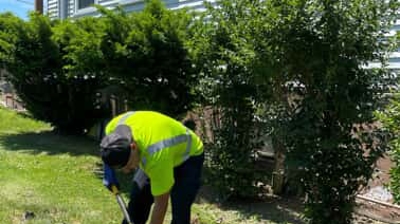The latest coronavirus, COVID-19, has been reported in 20 U.S. states thus far, with no signs of slowing down. Though coronaviruses are a common family of viruses, the latest strain has been raising fears around the world and clearing the cleaning aisles at local stores.
In an effort to combat the spread of the virus, the U.S Environmental Protection Agency has provided a list of disinfectants to use as protection against the virus. According to the EPA, coronaviruses “are one of the easiest types of viruses to kill with the appropriate disinfectant product”.
The list of disinfectants includes some ready-to-use (RTU) products, in addition to concentrated products. Due to the strength of some of these chemicals, it’s important to follow the labels, use the correct dilutions and follow proper disposal methods. Some products used for disinfection can be harmful to people and the environment when used incorrectly.
Some of the products included on the EPA’s list:
Ecolab Bleach disinfectant cleaner
Clorox Healthcare® Bleach Germicidal Cleaner Spray
Clorox Disinfecting Bathroom Cleaner
Lonza Disinfectant Wipes Plus
Lysol Brand Heavy Duty Cleaner Disinfectant Concentrate
Lysol® Disinfectant Max Cover Mist
Oxiver™ Wipes
How much has this affected the system already?
When using strong chemicals in your home, remember anything that enters your drains will enter your septic system. If these chemicals are not disposed of properly or if they accumulate in high concentrations in your septic tank, they could reduce the bacteria that is necessary for proper septic tank maintenance. Also, some of the listed products above were never meant to make it into your septic system, so there are even more dangers in flushing disinfectant wipes and other products. Solids are likely building up in your tank which will need to be pumped out by a professional.
How Do I Fix My Septic System If I’ve Used These Products
If you’ve been using disinfectants and you know these chemicals have entered your drains, consider a septic system additive. Bacterial additives introduce good bacteria to the septic system to help breakdown solids that could overflow or clog your septic tank.
- Use appropriate amounts of the chemicals – follow proper mixing instructions
- Ensure proper disposal of disinfectant products
- Consider a bacterial additive
A compromised drain field can have serious and expensive consequences, so it is vital to ensure it remains operating correctly. With so many of us spending more time at home, the last thing you want to deal with is a septic emergency. Contact us to schedule a service or visit our residential services page to learn more about the services we offer near you!


.2504171222540.png)

